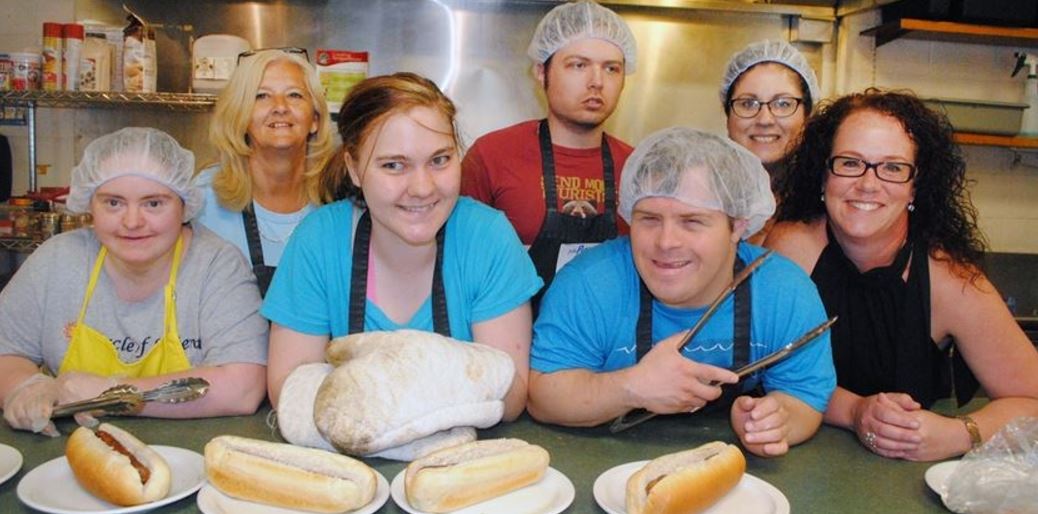Lower turnover, reduced insurance claims among benefits

Taking part in ‘hot dog day’ to celebrate the first graduates of Niagara Training and Employment Agency’s Job Path program on June 23 were NTEC clients Lindsey Beller, Alisha Stirling and Marc Fletcher in front, and Matthew McAffe in back. They were joined by NTEC employment services superintendent Jodi Delage in front, and job development facilitators Lesley Candler and Kathleen Kelly in back. – Paul Forsyth/Metroland
By Paul Forsyth Niagara This Week – St. Catharines
THOROLD — Graduates of a new Niagara Training and Employment Agency (NTEC) program were enjoying cooking up and serving hotdogs at the agency’s headquarters in Port Robinson on June 23, but soon some of them will also be savouring something entirely different: opening up their first paycheque.
That’s because the clients of the nonprofit agency that empowers people with special needs from across Niagara to participate more fully in community life through a variety of programs are the first alumni of NTEC’s new Job Path program, designed to get them a job in the competitive workplace through hands-on experience and support.
The “hotdog day” was a chance for the new grads to showcase their newly learned skills
…by organizing the day, preparing, cooking, serving and handling cash transaction alongside with fellow agency clients with different abilities than their own.
NTEC recently got a two-year funding commitment from the provincial government to demonstrate how the free eight-week Job Path program can help foster a provincial priority to get more people with disabilities working and to engage employers as champions and partners.
Jodi Delage, superintendent of employment services for NTEC, said in the past some job programs for people with disabilities were more charitable in nature.
“In the past employment was around tokenism,” she said next to the NTEC kitchen.
“This is much more about the bottom line.”
In short, Delage said people with disabilities can be huge assets for employers. For instance, they tend to be a much lower drain than other employees in terms of Workplace Safety and Insurance Board claims because they tend to be much more cautious and less likely to get hurt.
Then there’s turnover: people with disabilities cling to jobs with the tenacity of a bulldog, meaning employers can save thousands of dollars in lost productivity and training costs that can be eaten up when employees come and go.
People with disabilities cling to jobs with the tenacity of a bulldog.
Once people with disabilities get a job they work very hard to keep it,” said Delage. “They’re proud.”
